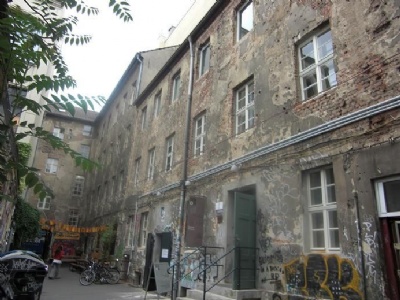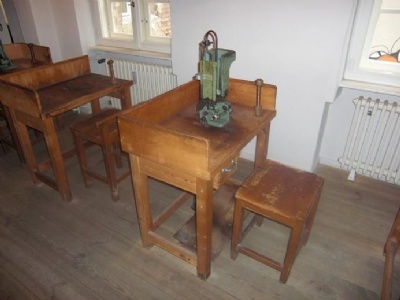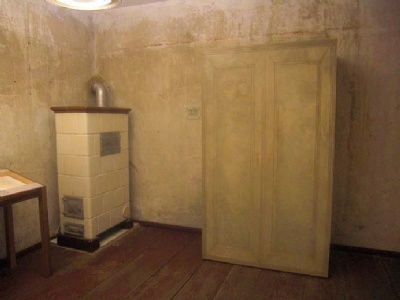Berlin – Otto Weidt
Otto Weidt was a German businessman who by profession was a upholsterer and furniture maker. In the early forties, he ran a company on Rosentahlerstrasse 39 near Alexanderplatz that manufactured brushes. The company was considered important for the German war industry and he had about 30 blind and deaf Jews and eight illegal Jews as employees, there by the name of Blindenwerkstatt. He thus protected these Jews from being deported to the extermination camps in Eastern Europe. When the noose was tightened for the Jews in Berlin in 1943, Weidt began bribing the Gestapo and issuing false documents to protect his Jewish employees. He also hid four Jews in a maple room in his workshop, but these were betrayed in October 1943 and sent to away. He succeeded, however, in a trip to Auschwitz in June 1944 to release one of those whom he had protected. Otto Weidt died in 1947 and in 1971 he was awarded a place in the garden of the righteous (dedicated to the non-Jews who protected Jews during the war) at Yad Vashem in Jerusalem.
Current status: Preserved with museum (2010).
Address: Rosenthaler Strasse 39, 10178 Berlin.
Get there: Metro to Hakescher Markt Station.
Follow up in books: Deutschkron, Inge: Blindenwerkstatt Otto Weidt (2008).



Most, if not all, know or have heard of Oskar Schindler but few know or have heard of Otto Weidt, yet they protected their Jewish employees. Through Steven Spielberg’s film Schindler’s list (1993), Schindler gets an attention that Weidt does not get. Hollywood has a huge impact on our historical knowledge.